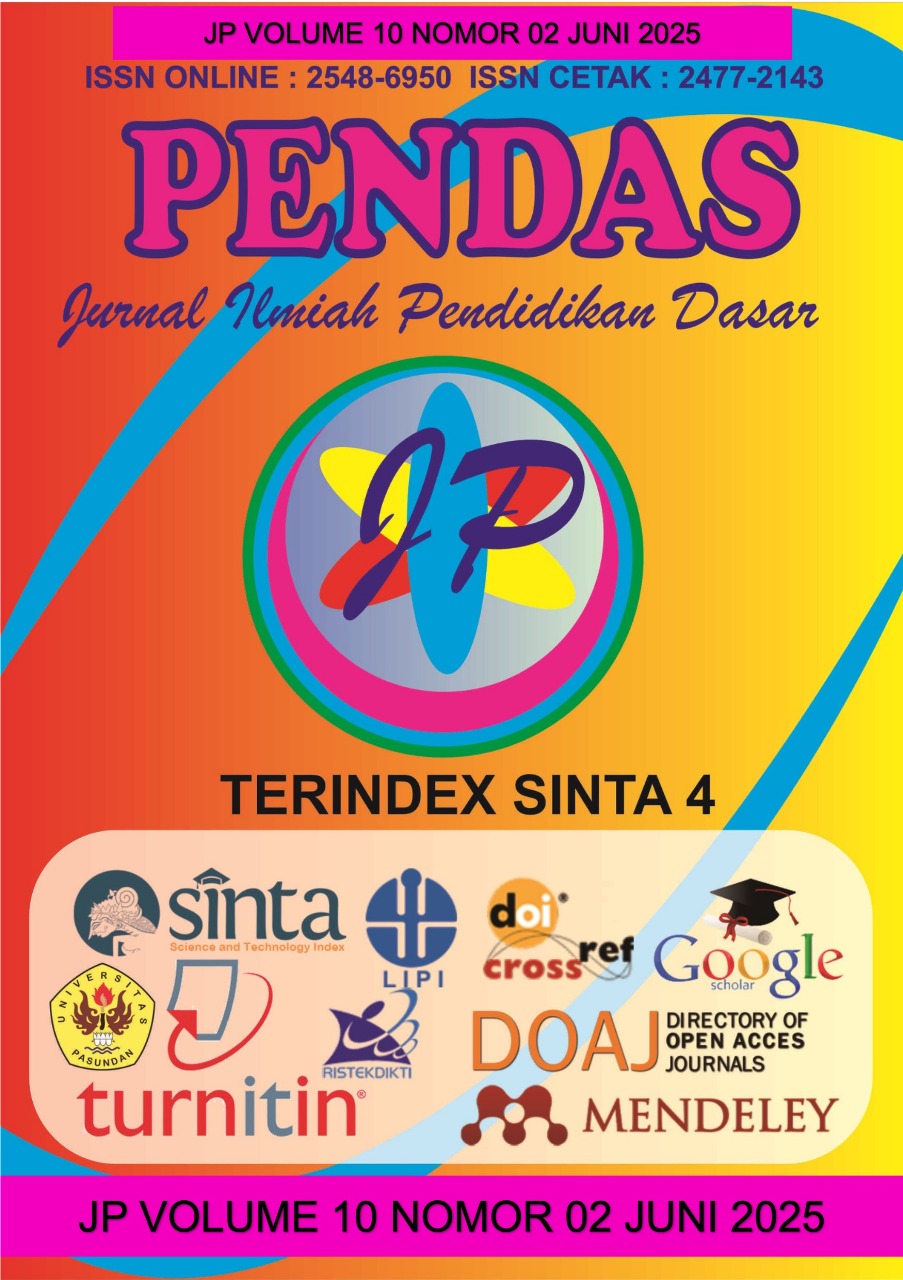UPAYA MENINGKATKAN PEMAHAMAN MATERI PENGUKURAN BERAT MENGGUNAKAN MODEL EXPERIENTIAL LEARNING PADA SISWA KELAS III DI SD MUHAMMADIYAH 04 BATU
DOI:
https://doi.org/10.23969/jp.v10i2.25347Keywords:
understanding material, mathematic subject, experiential learningAbstract
The purpose of this study was to determine how to improve the understanding of mathematical material on weight measurement using the experiential learning model in grade III students at SD Muhammadiyah 04 Batu. This study uses qualitative and quantitative research types with a classroom action approach. The subjects of this study were 28 grade III D students of SD Muhammadiyah 04 Batu consisting of 16 female students and 12 male students. This study was conducted in March 2025 in two cycles and each cycle consisted of two meetings. Data collection was carried out by conducting observations, interviews, tests and documentation. Data analysis techniques were carried out qualitatively and quantitatively. The results of the study showed that the process of implementing the Experiential Learning Model through 4 stages, namely: concrete experience, reflective observation, abstract conceptualization and active experiments made students more confident in expressing opinions based on the results of observations made, understanding of Mathematics material regarding weight measurement also increased through the application of the Experiential Learning learning model, as evidenced by an increase in the average class value from 70.00 to 75.00 in cycle I and 85.00 in cycle II. Before the experiment, only 10 out of 28 students achieved the minimum competency or 35.71% (less). In cycle I there was an increase of 15 students or with a percentage of 53.57% (sufficient) then to 21 students or 75% (good) in cycle II.
Downloads
References
Bruner, J. S. (1966). Toward a theory of instruction. Harvard University Press.
Daryanto. (2014). Pendekatan Pembelajaran Saintifik Kurikulum 2013. Yogyakarta: Gava Media.
Daryanto. (2014). Pendekatan pembelajaran saintifik kurikulum 2013. Gava Media.
Depdiknas. (2006). Permendiknas Nomor 22 Tahun 2006 tentang Standar Isi. Jakarta: Departemen Pendidikan Nasional.
Hartati, R., & Nugroho, A. (2020). Peningkatan pemahaman konsep satuan berat melalui model experiential learning di SD. Jurnal Ilmu Pendidikan Dasar, 5(2), 120–128.
Kemendikbud. (2017). Panduan Implementasi Kurikulum 2013. Jakarta: Kementerian Pendidikan dan Kebudayaan.
Kolb, D. A. (1984). Experiential Learning: Experience as the Source of Learning and Development. Englewood Cliffs, NJ: Prentice Hall.
Purwanto, M. N. (2011). Prinsip-Prinsip dan Teknik Evaluasi Pengajaran. Bandung: Remaja Rosdakarya.
Putri, N. A. (2018). Penerapan experiential learning untuk meningkatkan hasil belajar Matematika di sekolah dasar. Jurnal Pendidikan Dasar, 4(1), 45–53.
Sanjaya, W. (2010). Strategi Pembelajaran Berorientasi Standar Proses Pendidikan. Jakarta: Kencana.
Susanto, A. (2013). Teori Belajar & Pembelajaran di Sekolah Dasar. Jakarta: Kencana Prenadamedia Group.
Sutikno, M. (2014). Model Pembelajaran Inovatif. Bandung: Refika Aditama.
Uno, H. B. (2012). Model pembelajaran: Menciptakan proses belajar mengajar yang kreatif dan efektif. Bumi Aksara.
Wulandari, D. (2019). Pengaruh experiential learning terhadap aktivitas dan hasil belajar Matematika. Jurnal Inovasi Pendidikan Dasar, 3(3), 211–219.
Downloads
Published
Issue
Section
License
Copyright (c) 2025 Pendas : Jurnal Ilmiah Pendidikan Dasar

This work is licensed under a Creative Commons Attribution 4.0 International License.














































